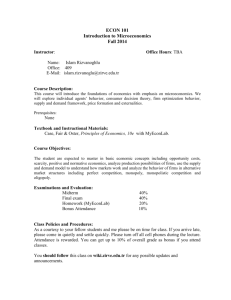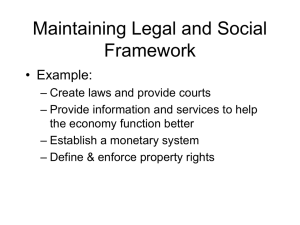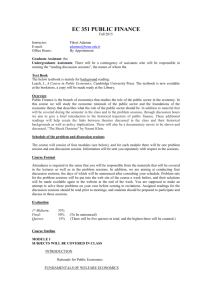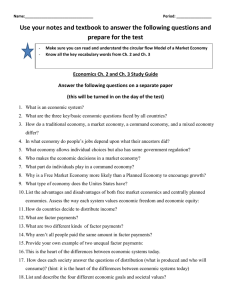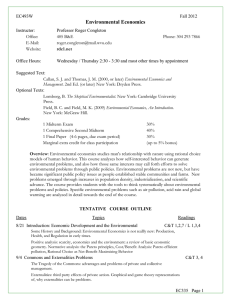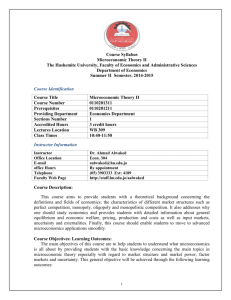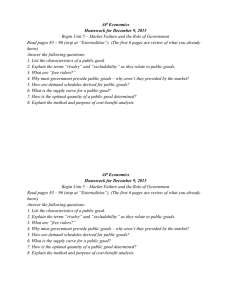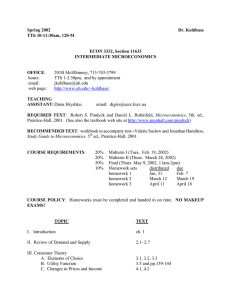Advanced Business Economics: Semester 1 Outline
advertisement
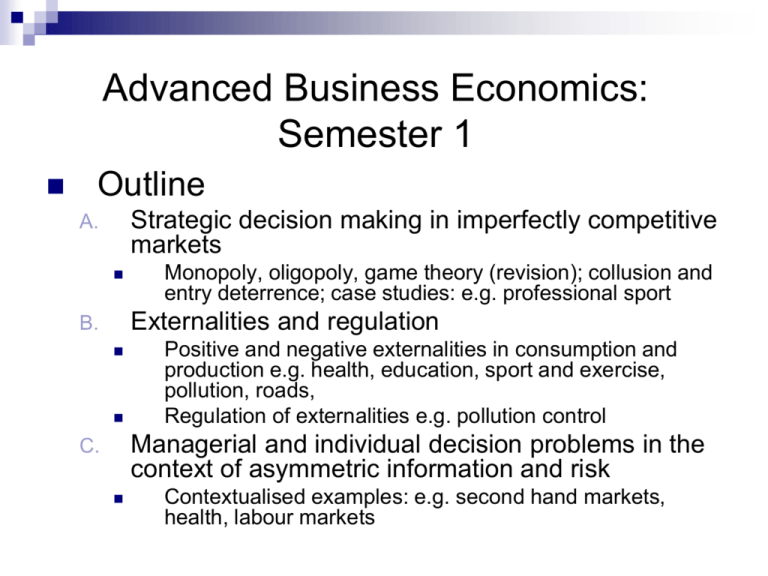
Advanced Business Economics: Semester 1 Outline Strategic decision making in imperfectly competitive markets A. Monopoly, oligopoly, game theory (revision); collusion and entry deterrence; case studies: e.g. professional sport Externalities and regulation B. Positive and negative externalities in consumption and production e.g. health, education, sport and exercise, pollution, roads, Regulation of externalities e.g. pollution control Managerial and individual decision problems in the context of asymmetric information and risk C. Contextualised examples: e.g. second hand markets, health, labour markets Aims This part of the course is designed to help you: Enhance your understanding of ideas and theories that underpin the economic analysis of decision making by economic agents in the context of the economic environment. Study the interplay between economic theory and economic policy and to critically examine some of the arguments for external regulation of business Gain some appreciation of the complexity of the economic environment in which individuals, firms and governments operate. Sharpen your analytical skills. Assessment A class test – the penultimate week of this term Questions will relate directly to the lecture topics Half of the final exam Essay/problem style questions Hints: Revision questions Practice working with theories and models, drawing diagrams, thinking about data Suggested background reading For theory and business context Allen et al. 2007. Managerial Economics 7th edition. Norton Kreps, D. M. 2004. Microeconomics for Managers. Norton Frank, R. H. 2008. Microeconomics and behaviour. McGraw Hill Wall,S., Minocha, S. and Rees, B. 2010. International Business, Pearson For contextual examples Grimes, P, Register, C. and Sharp, A. 2009. Economics of Social Issues, McGraw Hill For more on game theory Dixit, A., Reiley, D. H. and Skeath, S. 2009. Games of Strategy, 3rd Edition , Norton Rasmusen, E. 2007. Games and Information, Blackwell Carmichael, F. 2004. A Guide to Game Theory, Pearson

